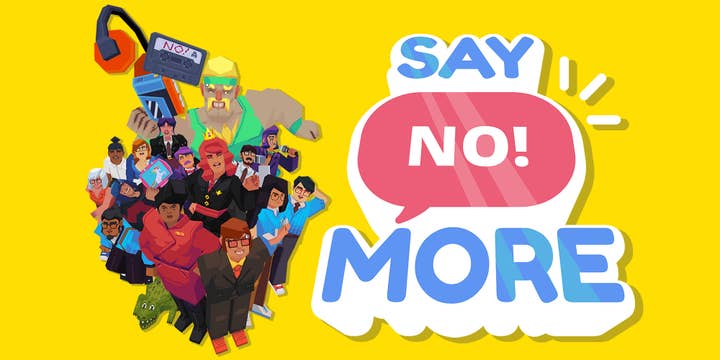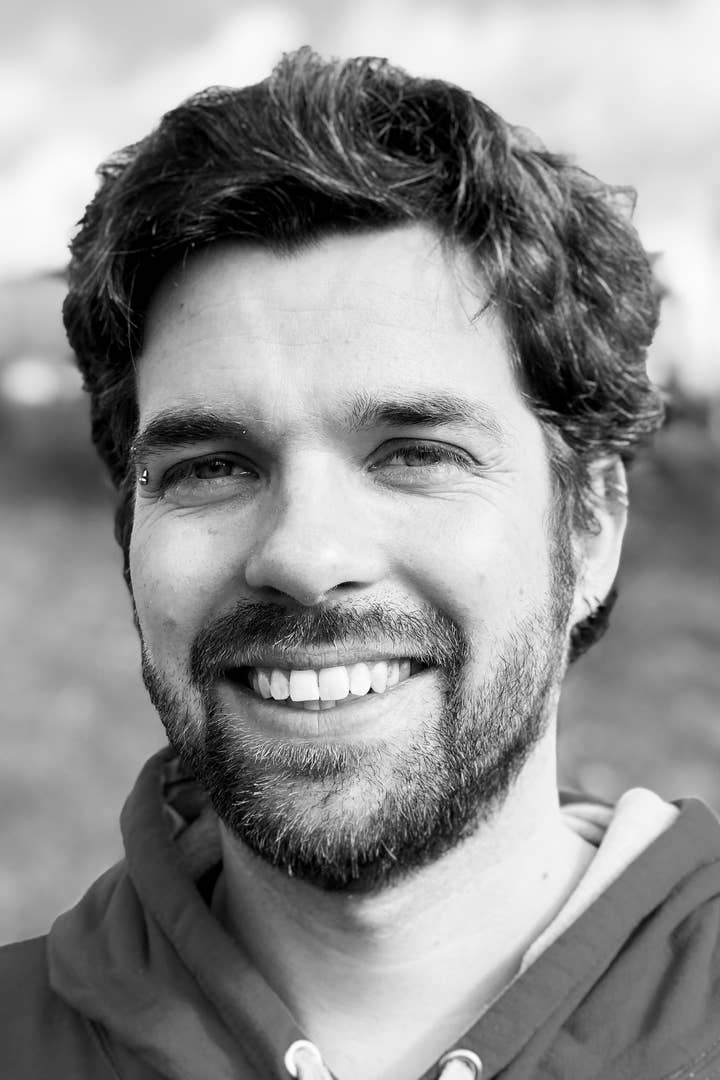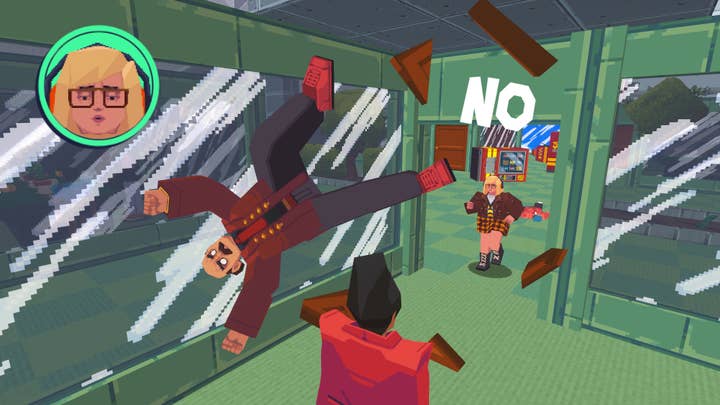The positive power of saying "no" in the workplace
Tobias Frisch, executive producer at Say No More developer Studio Fizbin, explains why "no" is a word that can drive positive change
Studio Fizbin's latest title, Say No More, is about the importance of saying "no." More broadly though, it's about setting boundaries. This isn't a thing that comes naturally to most of us as we're socialized to please those around us by going along with whatever they want.
We avoid saying "no" for other people's comfort, but saying no is crucial to setting boundaries, which is one of the most important practices in creating a positive work environment.
Saying no can lead to new and better ideas
One of the main benefits of saying no is that it can lead to alternative -- and often better -- solutions. As an executive producer I'm constantly having to say no to various requests.
I consistently get staff asking for more time or money or additional hires to help with a project. And while it's never fun to deny my colleague's requests, I frequently have to reject these. It's not what people want to hear, but by shutting down these initial requests we're able to brainstorm new solutions.
It's not what people want to hear, but by shutting down these initial requests we're able to brainstorm new solutions
For example, we once had a game that exploded scope-wise. New ideas were being implemented all the time and we didn't know how to say "no," so it stayed in development for a year longer than planned and there still wasn't enough time. That's when we decided that we needed to set boundaries, including implementing some hard deadlines. This meant we didn't have time to realize our initial ideas. For example, one fully animated sequence had to be reimagined as a sequence of still pictures. It wasn't the first idea that came to mind, but by the end these restrictions actually enhanced the team's creative problem solving.
Another time one of my employees always wanted to solve problems by asking for more personnel. I understood their frustration, but it wasn't economically feasible, so I told them that hiring more people was not the only solution and asked for alternate ideas.
That's when they came up with the idea of reusing graphics from earlier levels in later stages in a way where no one would notice. It was totally unnoticeable to players, while it saved us a lot of time and money. This employee didn't get what they'd initially asked for, but by saying no to them we found a solution that both of us were happy with.
It's only by asserting your independence that you're able to make fruitful compromises. Simply saying "No, I'm not doing that" without offering any alternatives can lead to resentment or hostility, but shutting down one idea in favour of asking "What else can we do?" will inevitably result in a solution that pleases more people because everyone is being heard. Saying no isn't shutting a door, but really it's opening a window.

Saying no creates a more respectful environment
Another important part of setting boundaries is that it allows us to be our authentic selves. This is easier said than done, as when something is asked of us we're afraid that saying no can make us seem lazy, or selfish, or "not a team player."
We want to be seen as efficient and reliable and give off an image of being an infallible worker. The problem is that this is a totally unrealistic ideal that nobody can live up to, and by agreeing to this we've created a culture where everyone's expectations are out of whack. Then we either resent ourselves for falling short of these goals (the classic case of imposter syndrome), or we resent others for dumping too much on us.
When people aren't honest with each other, everyone finds themselves in an unnecessary rat race to please one another when a more upfront conversation could have alleviated all this unpleasantness by creating a more respectful environment where everyone is willing to meet each other's needs. When these needs are obfuscated through a lens of false agreement, communication is muddled leading to a lot of unnecessary labor that really brings down morale.

Setting boundaries doesn't come easy though. We're a society of people pleasers, especially in the workplace. For a long time I'd fear that saying no to a request would make me "the bad guy." I thought that saying no would cause conflict, when really the opposite is true. It's only through asserting one's independence and making their needs known that they can create a healthy environment that truly respects the well being of the individual. I'd often fear saying no, but in the end the worry of what would happen if I said no was always worse than the reality.
How to say no more
Saying no isn't easy, but there are ways to make it feel more comfortable. For one, we'd recommend not doing all the time, as you do in the game, which obviously exaggerates everything for comedic effect. In real life it's best to speak to and with your team about your thoughts. Don't try to be the problem solver for everything, but rather listen to what they have to say and try to collectively come up with a solution. Once you put ego aside, it becomes much easier to say "no," as everyone is focused on coming to a collective solution.It's also important to make sure everyone understands that a no doesn't mean that whatever problem is being presented won't be solved, but rather that it requires an alternate solution. Set simple rules like you can't say no without offering an alternative. We'd recommend starting with small stakes issues, before tackling anything too big. Saying no is like working out a muscle. It's not easy at first, but the more you do it the more comfortable it becomes.
We all want to be easy-going, well liked, productive people, so denying others' requests can fly in the face of our people pleasing instincts. But it's through saying no and asserting our boundaries that we remind others that we're complicated, unique, individual humans. And through understanding what actually works for us, we can ultimately be greater assets than we'd be were we blindly saying "yes" and going along with whatever's asked of us. It's only through being authentic that we come up with healthier solutions that lead to a more positive work environment all around.
Tobias Frisch is executive producer and COO at Studio Fizbin, the developer of Say No More. The title, which launched earlier this year on Steam, Switch and iOS, is set in a universe where the word "no" has been banned and see players reclaiming that power as an intern at a big company.
